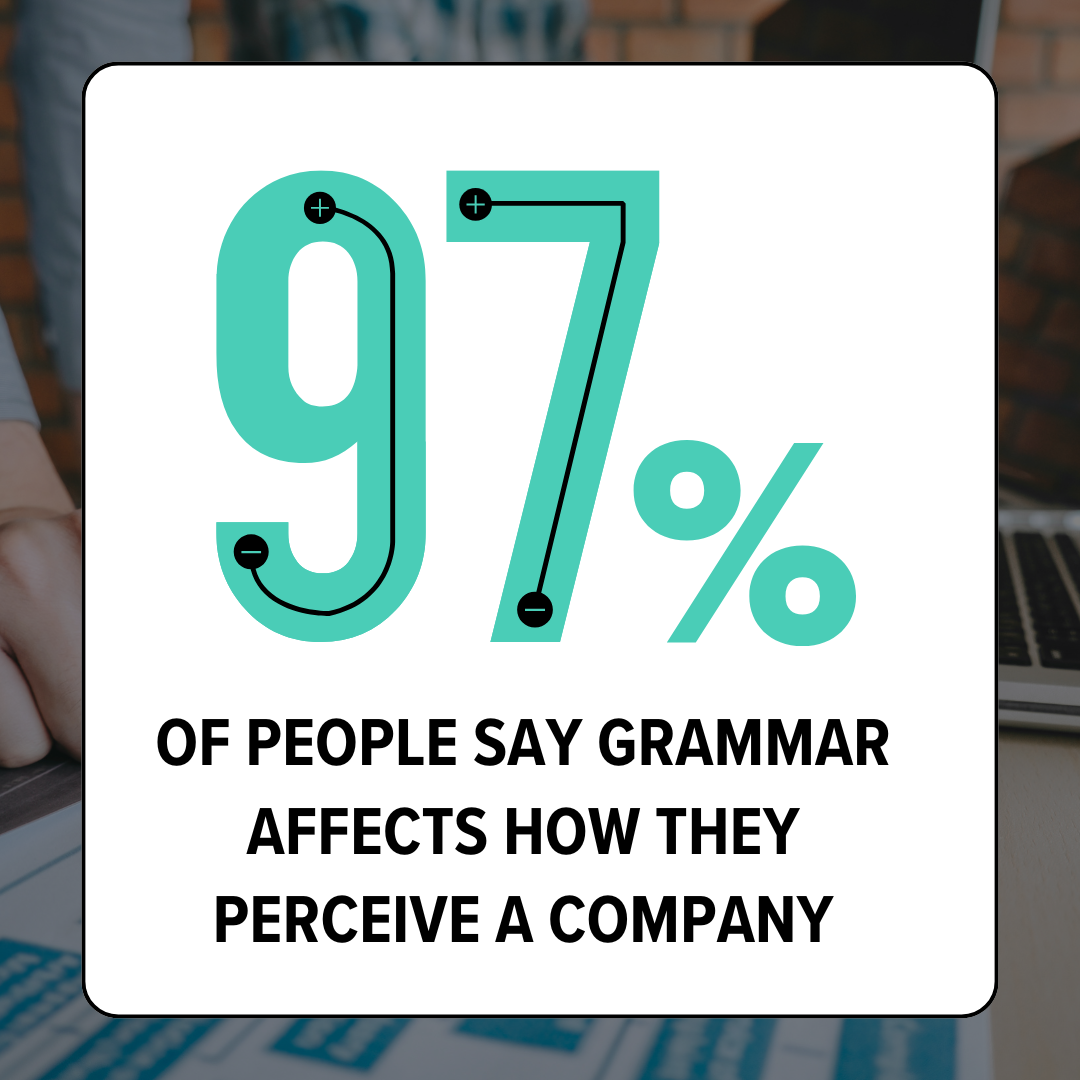Why Grammar Still Matters in B2B SEO
When it comes to B2B SEO, most teams focus on technical structure, keyword strategy, and backlinks. And they should—those are essential. But if your website content is riddled with typos, inconsistent punctuation, or awkward phrasing, it doesn’t matter how optimized your site is.
Poor grammar erodes trust, damages credibility, and undermines your authority, especially in technical or industrial markets where precision matters.
Here’s why grammar should still be on your radar and how to strike the right balance between SEO, clarity, and professionalism.

1. SEO Isn’t Just for Search Engines
Search engines want to show content that users find valuable. If your web page is grammatically confusing or hard to follow, users bounce quickly—and Google notices. While grammar isn’t a direct ranking factor, user behavior is. Poorly written content can:
- Increase bounce rates
- Lower time-on-page
- Hurt your site’s perceived trustworthiness
In B2B, where buying cycles are longer and decisions are high-stakes, trust signals matter. A polished site helps establish that from the start.
2. Grammar Mistakes Create Confusion (and Lost Conversions)
Your product might be complex. That doesn’t mean your content should be. Grammar mistakes—especially in long, technical explanations—add unnecessary friction.
Imagine this sentence on a product page:
❌ “Our formulation are designed for high-heat, corrosive, and biologic resistance.”
Even if a buyer understands the intention, that moment of confusion breaks the flow. And when buyers are evaluating multiple vendors? That stumble can make your brand feel less reliable.
3. It’s Not About Perfection—It’s About Professionalism
I’m not saying every sentence needs to sound like it came from a Pulitzer-winning editor. But when you’re targeting engineers, procurement teams, or technical buyers, your content should reflect the same precision and attention to detail as your product.
That means:
- Subject-verb agreement
- Consistent punctuation
- Clear sentence structure
- Proper formatting and capitalization (especially in specs or tables)
Even a missing hyphen or misplaced period in a product spec sheet can signal sloppiness.
4. Tools Help, But Don’t Replace Good Judgment
Tools like Grammarly or Hemingway are helpful, but they’re not enough on their own. B2B marketers need to pair those tools with industry fluency and content strategy. That means knowing when to:
- Use technical terms vs. simplify for readability
- Break long blocks of text into digestible bullets
- Prioritize clarity over keyword stuffing
5. Good Grammar Strengthens Your Brand Voice
B2B buyers want confidence, not confusion. If your copy is filled with errors or an inconsistent tone, it feels disjointed—even if your product is excellent.
Grammar and syntax shape tone. The right structure can help your message sound:
- Authoritative
- Helpful
- Easy to follow
- Aligned with your brand’s personality
When writing for technical audiences, clarity is power.
Polish Your Content, Boost Your Credibility
Grammar might feel like a small detail in the grand scheme of B2B SEO—but it’s part of what sets high-performing content apart. If you’re investing in search visibility, don’t let easily avoidable language mistakes get in the way of conversions.
Your content represents your brand. Make sure it’s working as hard as the rest of your marketing strategy.
Need help turning your technical product into clear, search-optimized content that builds trust? Let’s create B2B content that ranks—and resonates.
related posts
Find the answers to the most common SEO questions from manufacturers, engineers, and marketers—covering everything from local search visibility to AI-generated search results and what they mean for your content strategy in 2025.
In B2B marketing, the funnel is more than a diagram—it’s the blueprint for aligning search intent with measurable results. By tying keyword intent to funnel stages, you not only attract the right audience—you guide them from awareness to loyalty with clarity and precision.


